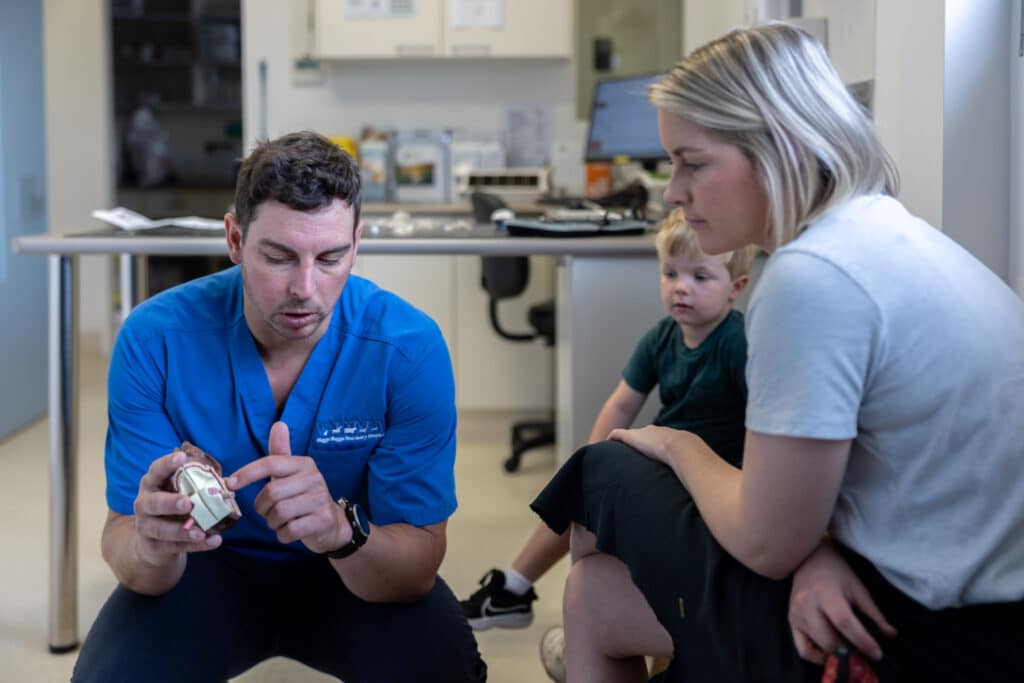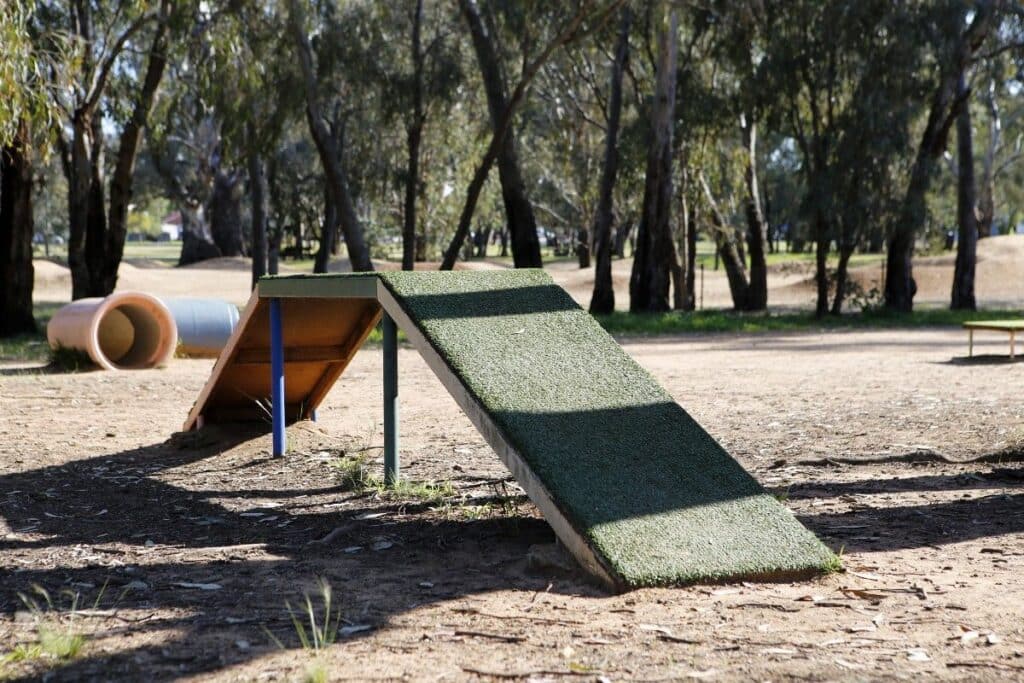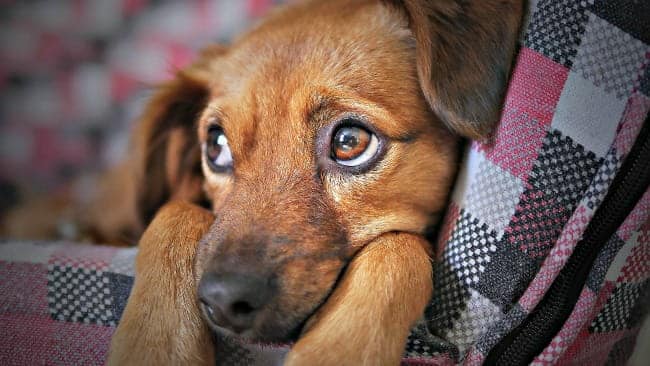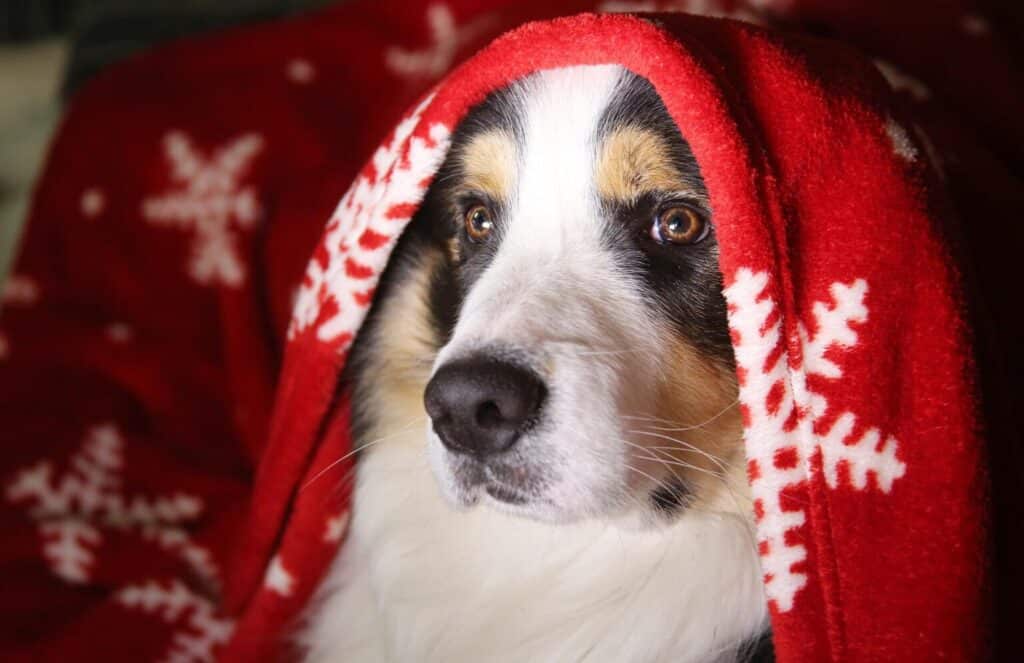Periodontal disease (dental disease) is what is known as the silent epidemic in the veterinary world. It is a systemic disease (affects numerous tissues and organs) affecting up to 80% of dogs and cats, as it very easily goes unnoticed due to our pet’s ability to adapt and adjust. This gives it the ability to become a very serious disease, and can begin to affect other organs in the body and our pet’s overall health. To prevent this, regular dental assessments are required in cohesion with a dental home care routine
Why didn’t I notice any discomfort with my pet?
As humans, when we experience tooth pain or discomfort, we will take a pain medication and adjust to this pain (either by avoiding using that side of the mouth for chewing or avoiding certain foods that create the sensitivity) for a period of time before considering booking in a dental appointment for ourselves. Our pets are very much the same but with the inability to effectively communicate this pain or book their own dental appointment. This is where owners can be of great help in providing relief and comfort for their pets, by sticking to a regular routine with dental home care and veterinary dental check-ups.
My dogs/cats’ teeth look fine, why do they need an anaesthetic for a dental?
When thinking about the tooth and structures of the mouth, it very much refers to the iceberg analogy. What we see on the outside is actually only 30% of the tooth’s surface. Periodontal disease also affects below the gumline and there can be many underlying issues regarding other structures of the teeth. In our mission to help keep our patients as comfortable as possible whilst providing outstanding care, it is best and recommended that your pet has an anaesthetic to help keep them safe during the procedure and give us the ability to perform a complete oral exam and health assessment, enabling us to personalise and provide the best outcome for your pet.
I have the same homecare routine with both pets, why is one pets teeth worse or requiring more dental treatment?
We see this often, even with pets who are littermates, however, no two animals will ever be the same. The cause for periodontal disease is essentially plaque and tartar. This is formed by the individual chemistry in the mouth between saliva and food, along with eating habits, chewing habits and age, all playing a role in the individual biological response happening in your pet’s mouth. Certain breeds are also predisposed to having “bad teeth” or “bad breath”, further compounding the effects of poor oral hygiene.
Why do I need to brush my dogs’ teeth or have a dental home care routine
It is the physical action of the brushing that cleans the teeth, much like our own dental care. Dental chews and other additives can be thought of like our version of chewing gum or mouthwash; they help the process of keeping the mouth clean and fresh. However, this is simply not enough by themselves to keep a good standard of health and clean oral hygiene without tooth brushing. Without dental home care or regular dental assessments, our pet’s overall health can decline and pain and discomfort may go unnoticed. Regular upkeep of dental home care helps to ensure our pets continue to live a happy, healthy life, and it may reduce the amount of treatment required for your pet in the long run.
Signs your pet may require a dental assessment (oral assessment) before their annual appointment
- It is noticed they become “messier” when eating or are reluctant to use one side of their mouth.
- Refusal or reluctance to eat (especially if normally fed dry food, but suddenly only likes tinned food or softer options)
- Blood from the oral cavity (mouth) in food or water bowls, on toys, or noticing really inflamed gums
- No longer wanting or allowing handling or touching of the face or mouth (especially if they normally would allow this)
- Noticing any chipped, broken, or missing teeth
- Bad odour
- Drooling and licking or playing with their tongue (this can also indicate pain or anxiety)
At Wagga Wagga Veterinary Hospital, we understand your busy lifestyle might be a roadblock to having a great dental home care routine. However, that 3 minutes a day can have substantial impacts for your pet’s future. Below are a few ways to try and help better achieve your pet’s home care routine.
- Get the children and younger family members involved. Our pets are a great way of getting younger children to be enthusiastic about tooth brushing, and the inclusion of our pets makes it all so exciting and a great bonding experience. A great opportunity for older children to learn responsibility, take on an extra house chore, or earn some pocket money whilst building their bond with their pets.
- Having it as a set daily (gold standard) or every second day routine helps our animals become comfortable being handled around the face and knowing their expectations or what is required of them, minimises plaque build-up, and can overall become a less stressful and more efficient experience for all involved.
- Use of a dental diet, chews, water, and food additives can also help in the upkeep of your pet’s oral health.
- Use the television ad or recap of your favourite show as the time to quickly implement your pet’s dental home care.
If you would like to discuss starting your pet’s dental home care, please book a consultation with a veterinary nurse from our team. We will be able to guide you through tooth brushing, how to introduce tooth brushing, and discuss a good dental home care plan tailored for you and your pet. Appointments can be made via phone on (6926 0900), where you will be greeted by one of our lovely reception team members. Online booking options are also available online, here







